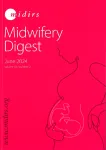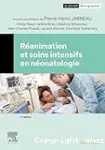| Titre : | Do evaluations of women's experiences of maternity care recognise diversity? A protocol for a rapid review (2024) |
| Auteurs : | Dalvir Kandola ; Debi Bhattacharya ; Alison Harte |
| Type de document : | Article : texte imprimé |
| Dans : | Midirs. Midwifery Digest (Vol. 34, n° 2, juin 2024) |
| Article en page(s) : | p. 110-112 |
| Langues: | Anglais |
| Sujets : |
Paramédical (MeSH) Diversité culturelle ; Qualité des soins de santé ; Soins adaptés sur le plan culturel ; Soins infirmiers maternels et infantiles ; Soins périnatals ; Stéréotypes |
| Résumé : |
In England and Wales, 18.3 per cent of the population identify themselves as 'non-White' (Office for National Statistics (ONS) 2021). With non-White women being two to four times more likely to die in the childbearing continuum (Knight et al 2023), it is crucial to ensure that methods that seek to understand women's experiences of care recognise diversity. It is well documented that non-White vvomen experience racial stereotyping, lack of choice and poor cultural understanding, are less likely to be treated with kindness and respect, lack trust in staff and feel their communication needs are not being met (Henderson et al 2013, Jomeen & Redshaw 2013, Firdous et al 2020, Khan 2021, Birthrights 2022, Gohir et al 2022, Kapadia et al 2022, MacLellan et al 2022, Thomson et al 2022).
In order to address failures and disparities in care, it is essential that we establish women's experiences of maternity care. The relationship between experience and quality of care has been highlighted in recent independent investigations of maternity services (Independent Maternity Review 2022, Kirkup 2022) and it is important that the findings of experiences generate solutions, driven by the needs of the population. This review will contribute valuable insights to improve maternity care services and feedback mechanisms, ensuring they are inclusive and responsive to the diverse needs of service users. It is vitally important that future research informing practice should adopt culturally safe methods to avoid widening the inequality gap in health care. The results of this review will therefore inform the design of future primary research, seeking to determine women's experiences of maternity care. |
Exemplaires (1)
| Localisation | Section | Support | Cote de rangement | Statut | Disponibilité |
|---|---|---|---|---|---|
| Bibliothèque Paramédicale | Périodiques | Périodique | MID.DIG. 24-2 | Empruntable | Disponible |








![Maïeutique [série parue dans] The Lancet - juin 2014](https://bib.henallux.be/img_cache/pmb_henallux_prod_record_518418.webp)
